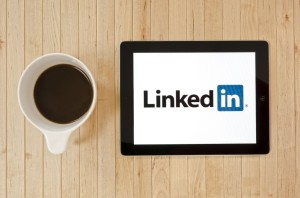#CareerAdvice : #Networking -5 Types of Connections you Need in your #LinkedInNetwork .
Having a robust professional network can be a game changer when thinking about your career journey. The people in your network can help make future connections, refer you for a job, provide advice, and so much more. But building a thoughtful–and more importantly, actionable–professional network, can seem daunting. Who should you connect with and why?
Based on our research, the number of connections to kick-start the value of LinkedIn’s network is 30. Once you hit this many connections, you should start to see a more relevant news feed and engagement on your posts and new opportunities start to open up. However, this only works if you connect with people you know, as this ensures the notifications and information coming through are relevant to you.
With that in mind, here are the five types of people we recommend you connect with and nurture a relationship with on LinkedIn.
FRIENDS AND FAMILY MEMBERS
This might seem like overkill to some folks, but it’s important to consider your family members and friends as part of your professional network. Yes, you can probably pick up the phone and give your relatives a call for some professional assistance or call your friend who works at your dream company to help you get your foot in the door.
But, by actually adding your friends and family members to your LinkedIn network you will get insight into their unique professional network that you might not have known about otherwise. Maybe your father-in-law actually knows the hiring manager at that dream company, and he might be the best person to engage with to get your foot in the door. Or, your good friend has an old classmate who is on the career journey you’re aspiring to be on and is happy to connect you two for a coffee meeting. That’s the power of a robust professional network.
Like this Article ? Share It ! You now can easily enjoy/follow/share Today our Award Winning Articles/Blogs with Now Over 2.5 Million Growing Participates Worldwide in our various Social Media formats below:
FSC LinkedIn Network: www.linkedin.com/in/fscnetwork
Facebook: http://www.facebook.com/pages/First-Sun-Consulting-LLC-Outplacement-Services/213542315355343?sk=wall
Google+: https://plus.google.com/115673713231115398101/posts?hl=en
Twitter: Follow us @ firstsunllc
Question: Want the ‘the best/current articles/blogs on the web’ on Job Search, Resume, Advancing/Changing your Career, or simply Managing People?
Answer: Simply go to our FSC Career Blog below & type(#career, #leadership, #life) in Blog Search: https://www.firstsun.com/fsc-career-blog/
What Skill Sets do You have to be ‘Sharpened’ ?
Continue of article:
CLASSMATES OR SCHOOL ALUMNI
Whether you’re currently a student or have recently graduated, connecting with your classmates (present or former) is another great way to build your professional network. Find people you worked with on a group project or studied with for that big final exam you aced. Your classmates are also looking ahead at their career paths, so it’s a good chance to help each other find new opportunities.
CURRENT AND PAST COLLEAGUES
The people we work with are more than just teammates–they help us make it through the day and can also help us get ahead in our careers. We spend the bulk of our day with these folks. In fact, 95% of working professionals think it’s a good idea to have friends at work, and 63% say they have relationships with their coworkers outside the office, according to LinkedIn’s data.
We all spend a lot of time each week interacting with our teams at work. But you can strengthen relationships by liking, commenting on, or even resharing what your teammates are sharing online.
Another benefit of connecting and engaging with your current colleagues on LinkedIn? If someone on your team is leaving the company (or if you are leaving), it will be easier to stay connected for the long-term. With messaging on LinkedIn, it doesn’t matter if contact information changes from job to job, you can always stay connected—which is why it’s also important to connect with your past colleagues. Whether you’ve only had that one summer internship, or you’ve held numerous roles in your career, we recommend connecting with your old colleagues on LinkedIn and staying in touch.
Previous colleagues can serve as a great reference for future job opportunities or can help talk through job challenges with an outside perspective you can trust. This is how you can turn a handful of meaningful relationships at one company into a powerful network of connections all across your industry.
SOCIAL ACQUAINTANCES
It’s important to have a diverse professional network, including people from different backgrounds and working in different industries and roles as you. This might seem like a difficult task since most of the people you interact with might be at your current job or past job (so same industry), but it’s time to think outside of the workplace.
So, you are part of an evening soccer league, a volunteer team, or a local church group? Put these social connections to work in your professional career. The people you meet through these types of organizations are a great addition to your network, since they likely add new perspectives and diversity to your current network.
SOMEONE YOU CAN HELP IN THEIR CAREER
Your professional network shouldn’t just be about adding people who can help you with your career. It’s about both getting and giving help. Make sure you consider accepting invitations or reaching out to people who are looking for career advice you can provide or to open the door for those who might be looking for a new gig.
These should still be people you actually know, such as a former coworker who is earlier in their career journey and might need advice, someone you met at a conference or networking event who is looking to build their career, or even someone you’ve interacted with via Linkedin Groups or InMail. Pay it forward, and pass along the professional goodness you’ve received in your career to date.
These are just a few of the types of connections you should be making on LinkedIn, but this is a great place to start as you build and nurture your professional network. As your career changes direction and evolves, your network is there to help you. The stronger your network, the further everyone goes.
FastCompany.com | June 26, 2019 | BY LIZ LI 4 MINUTE READ



